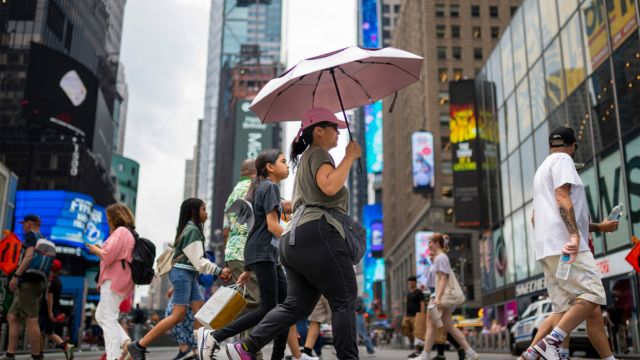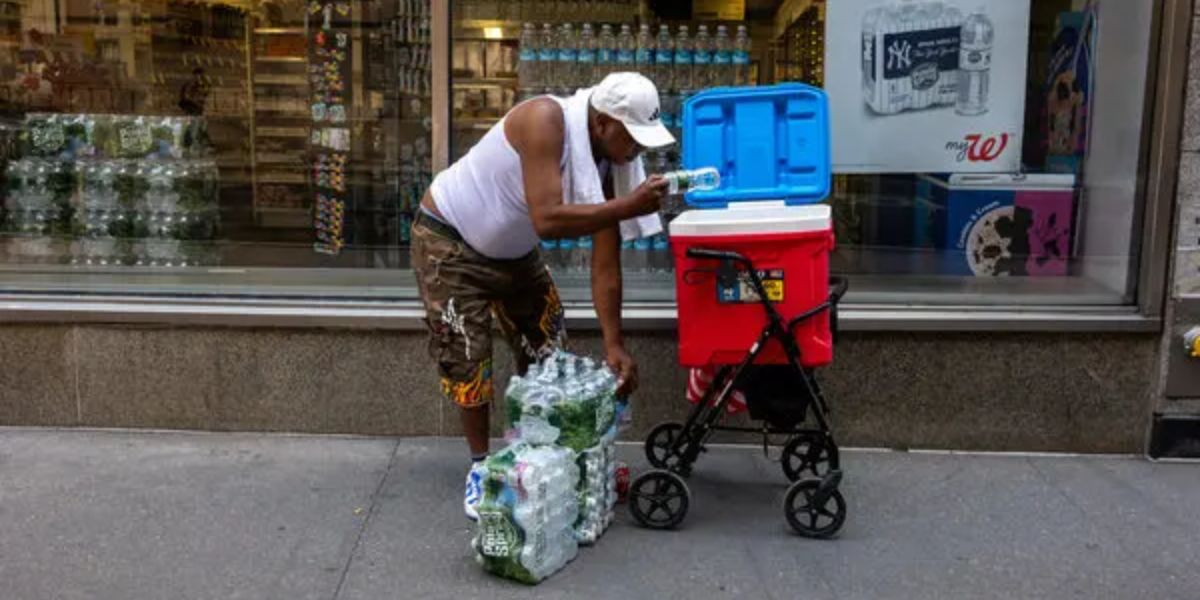WFCN –
A recent report was presented on Thursday by an anti-poverty group that found that over two-thirds of low-income New Yorkers are experiencing electricity bill fallbacks.
A study conducted by the Robin Hood Foundation and Columbia University examined energy insecurity in the five boroughs. The findings revealed that around 700,000 New Yorkers experienced utility cuts at least once each year in their homes. The group claims that it is more economically burdensome for renters, Black and Latino New Yorkers, and Bronx inhabitants to maintain their power.
A new heat wave is hitting New York this week, with temperatures in the mid to upper 90s and near-constant air quality advisories. In response, Con Edison has asked its customers to reduce their energy consumption in order to help avoid power disruptions. Electricity, gas, and water rates are all set to increase nationwide in the coming months, which means that utility bills should also go up.

According to Robin Hood’s chief program and impact officer, Matt Klein, “Utilities are bare essentials that every New Yorker must have to cool their homes, refrigerate and cook their food, see in the dark, and remain connected to the internet and the outside world.” “These are not luxuries but indispensable and necessary services.”
SEE MORE –
7 Effective Strategies to Handle the Intense Arizona Heat
The survey revealed that among New Yorkers living below the poverty line, 62% have utility bill defaults and 43% see their services reduced. The study found that 37% of Black New Yorkers and 5% of white New Yorkers had their utilities turned off. This disparity is more than seven times larger than the national average.
According to the survey, some consumers have a harder time financing their utilities in August, when the average cost normally peaks, because the summer months are hotter.
Programs like the Home Energy Assistance Program help New Yorkers avoid utility shutoffs, so they can continue to have heat and electricity even when the weather turns cold.
Helping families pay for air conditioners and their installation is the main goal of the city’s cooling program; maintaining the units is not. With COVID-19 relief programs set to expire and living expenses continuing to rise, New York City is bracing for utility rate spikes that could lead to more cutoffs and rationing of energy services.
Diana Hernandez, director of U.S. Programs at the Energy Opportunity Lab in Columbia University’s Center for Global Energy Policy, said, “A lot of people will have an air conditioning unit, but they will choose not to use it because of the cost.” “One strategy for dealing with it is to cut back on energy consumption as much as possible to cut costs, but there are health risks associated with that.”
Uncertainty over reliable access to energy impacts more than just those living in poverty. An estimated 20% of local families are late on their utility bills, according to the survey. A family of four would fall into this category if their income was $131,000, or 300% more than the poverty level.
According to Klein, lowering late fines and increasing aid to low-income New Yorkers will help reduce some of the budgetary strain.
For New York City to be more affordable for all, Klein emphasized the need of addressing housing, child care, tax policy, and wages, as well as energy-specific assistance like subsidies and disconnection protections, and making sure they reach all New Yorkers who require them.
Officials from Robin Hood say that energy insecurity is just as important as housing and food insecurity when discussing poverty, and that most New Yorkers who have had their utilities turned off or who are behind on utility payments have also faced another type of inconvenience.
“Having a safe and high-quality child care option, energy usage, and utility use are really basic needs that go right along with food security, housing security, and mobility,” Klein remarked. Concerns about energy and security must be given the same serious consideration as any other problem that the people of New York encounter.
